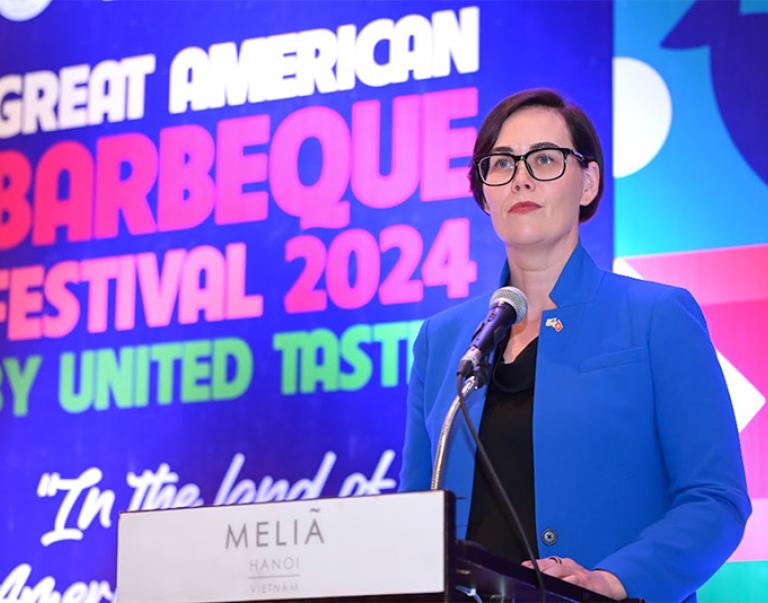March 31 marks César Chávez Day and serves as a reminder to all Americans of the importance of service, community, education, and commitment to advocating for farmworkers and their families. Chávez was a champion of farmworkers’ rights, calling for fairer wages and improved working conditions and helping open the door for better opportunities for farmworkers across the country.
Farmworkers are essential, frontline workers who often work long hours in unpredictable weather to ensure the food we eat every day reaches store shelves and dining room tables. No one understands this more than Arturo S. Rodríguez, who co-chairs the U.S. Department of Agriculture (USDA) Equity Commission. Rodríguez is President Emeritus of the United Farm Workers (UFW) organization, an organization he served for 25 years as President. At the time of his retirement, Rodríguez was only the second president in the organization’s history, succeeding UFW co-founder César Chávez following his death. Rodríguez has been active in UFW for 50 years.
Rodríguez continues Chávez’s legacy by bringing attention to the issues that impact the nation’s nearly 2.5 million farmworkers and ensuring these key stakeholders are part of important policy conversations.
Through the USDA Equity Commission, Rodríguez is working to create an improved environment for farmworkers and their families. He offered some perspective on what this work means to him in a video recorded at a recent Equity Commission event at the USDA Headquarters building.
“I want to ensure that farmworkers have a seat at the table just like anyone else does when it comes to determining what the future is for the agriculture industry,” Rodríguez says. “How do we all benefit? How do we all lift ourselves up and feel like we’re being treated with the respect and dignity that we deserve? Simultaneously, that we continue to ensure that this agriculture industry prospers and maintains what we’re known for – not only here in this country – but what we’re known for throughout the world.”
Rodríguez believes USDA can have the greatest impact on farmworkers by valuing the workforce and treating farmworkers with dignity and respect. This includes providing farmworkers, their families, and their communities with the resources, tools, and support they need to sustain and flourish.
For Rodríguez, a successful Equity Commission will mean that farmworkers feel as welcomed at USDA as farmers, ranchers, and other stakeholders do. It will mean farmworkers can depend on the Department for programs and services that benefit them and their work as an essential part of the agricultural industry. Rodriguez hopes the work of the Equity Commission open lines of communication between farmworkers and USDA so that those in the field can have a seat at the table.
“This means that those products purchased by USDA are purchased in a way that incentivizes employers to really ensure that the practices utilized at farms treat workers in a fair and equitable way and have good working conditions, and that farmworkers are provided with the benefits that are necessary to support themselves and their families,” said Rodríguez. “Farmers should be able to say ‘¡Sí Se Puede!’, and that the food USDA purchases and provides consumers is ethical. Everyone should be proud of how all stakeholders within the agricultural industry are being taken care of.”
In February, the USDA Equity Commission delivered its 2023 Interim Report to Agriculture Secretary Tom Vilsack. The report is informed by the work of the Commission and its Subcommittee on Agriculture and identifies a wide-ranging set of recommendations for ways USDA’s headquarters operations, field offices across the country, and its various program areas can make changes to better serve the unique needs of the Department’s many and diverse stakeholders. The Interim Report is available in both English (PDF, 1.2 MB) and Spanish (PDF, 1.3 MB).




